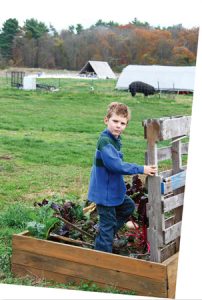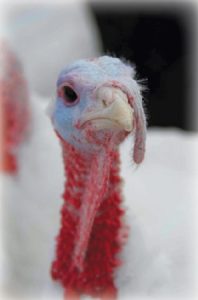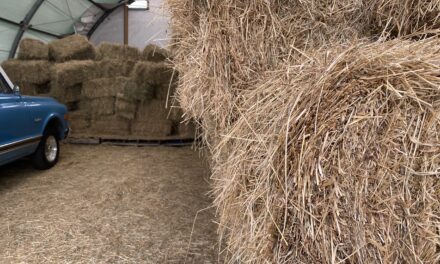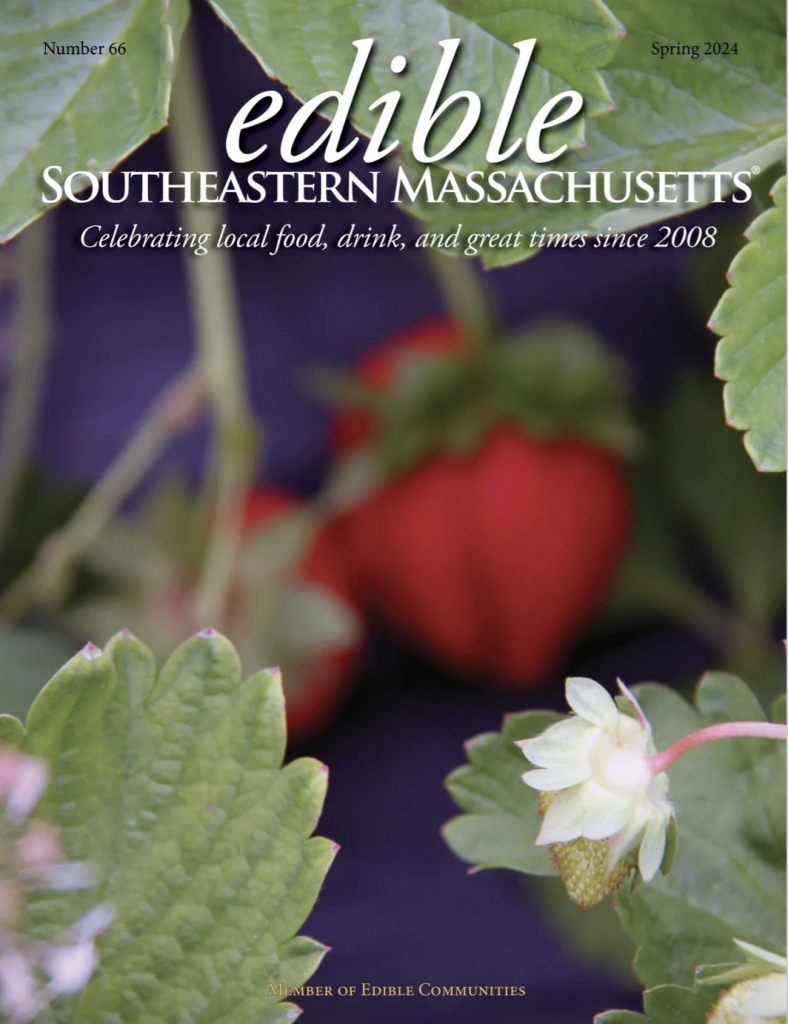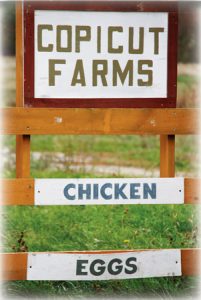 Hungry. Tired. Trudging through the supermarket; wondering what to make for dinner. Sound familiar? For the omnivores among us, what happens next is no surprise… almost reflexively, you toss a package of chicken into the cart. But, given what we know about the miserable lives of chickens raised on many U.S. industrial farms, shouldn’t we give our choice a bit more thought? Standing in front of the refrigerator case stocked with shrink-wrapped chicken parts, it is easy to avoid thinking about how these animals lived. But the choice to eat meat, to have a life taken to sustain your own, should be a thoughtful one. In addition to our ethical duty to care about the quality of life that animals raised for our benefit have had; there is also consideration for how these birds lived, and how they were processed, (which also affects their taste, cost, nutritional value, and exposure to antibiotics and chemicals). There is another way, and as anyone who has dined on a pasture-raised chicken can attest—the differences are clear. But, here’s the rub—in a time when local foods abound, finding pastured poultry raised close to home is still a challenge.
Hungry. Tired. Trudging through the supermarket; wondering what to make for dinner. Sound familiar? For the omnivores among us, what happens next is no surprise… almost reflexively, you toss a package of chicken into the cart. But, given what we know about the miserable lives of chickens raised on many U.S. industrial farms, shouldn’t we give our choice a bit more thought? Standing in front of the refrigerator case stocked with shrink-wrapped chicken parts, it is easy to avoid thinking about how these animals lived. But the choice to eat meat, to have a life taken to sustain your own, should be a thoughtful one. In addition to our ethical duty to care about the quality of life that animals raised for our benefit have had; there is also consideration for how these birds lived, and how they were processed, (which also affects their taste, cost, nutritional value, and exposure to antibiotics and chemicals). There is another way, and as anyone who has dined on a pasture-raised chicken can attest—the differences are clear. But, here’s the rub—in a time when local foods abound, finding pastured poultry raised close to home is still a challenge.
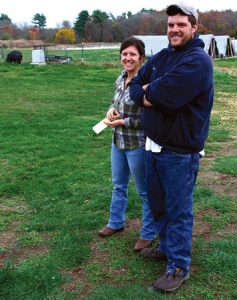
Three years ago, Elizabeth and Vince Frary set out to change this. After earning graduate degrees and working in other professions, these third-generation farmers thoughtfully set about returning to their agricultural roots. Vince is from a family of dairy farmers, but was open to trying something else. And, as Elizabeth recalls with a laugh, “I had certain rules. I grew up vegetable farming and said I would never pick another vegetable in my life.” They settled on livestock and as Elizabeth explained, “We wanted to do something that we thought was a sustainable manner of livestock farming, and poultry has a really incredible grain-to-protein ratio.” Ultimately the decision was formed by several factors—their heartfelt commitment to sustainability; the growing market demand for pasture-raised poultry; and upon the birth of their son, the ability to work and be together as a family.
With the decision made, they founded Copicut Farms on an old dairy farm in North Dartmouth. In only its third year, Copicut Farms now raises about 10,000 meat birds (both Cornish Cross chickens and Cornish game hens), 2,000 laying hens and 300 Broad Breasted White turkeys. Copicut’s birds truly live as nature intended—on pasture, foraging to their hearts content. Each flock stays within the confines of a large pen, which is moved every couple of days to a fresh pasture. Each pen has a shelter, which gives the birds a warm, dry refuge that is especially welcome on rainy days. The chickens and turkeys have plenty of room to roam and the birds help revitalize the pastures on this old dairy farm that, as Elizabeth observed, “were in pretty terrible shape.” It is a beautiful symbiotic relationship—the pastures nourish the birds, and they in turn fertilize the pasture.
While the birds spend all of their time on pasture, it is a common misconception that the diet of pasture-raised poultry consists entirely of grass and the insects they forage. Elizabeth set the record straight: for turkeys “probably about 20% of their diet is grass—they really love to forage. (For) our meat birds (it is) about 15% or so. I think that little bit of grass makes a huge difference.” Feed remains a large part of their diet, and given the thoughtfulness with which they raise their birds, it is no surprise that the Frarys are very picky about its quality. Made with about 40-50% regionally-sourced ingredients, the feed they give their birds is a special blend with protein levels that Vince, a former wildlife biologist, has determined to be most effective in raising the birds. Currently, the Frarys are on a waiting list for non-GMO feed, which is in very short supply. When asked about the benefits of pasture-raised poultry, Elizabeth gives a lot of credit to the cleanliness of the environment in which they live, “these guys are foragers and love to peck. If they were in a coop, ankle deep in manure, they would be pecking at manure, whereas out here they are eating really healthy stuff.”
Although no one enjoys thinking about how a chickens’ life is ended, the way a bird is processed can affect the taste and quality of the meat. Copicut is one of the few farms licensed by the Commonwealth to operate an on-site, small-scale, processing facility. In fact, Elizabeth noted, “there are only a few on the East Coast.” Due to state regulations, open-air slaughtering facilities can only process whole birds. Because the Frarys recently built an indoor facility with a separate, temperature controlled cut-up room, their license was upgraded, and they can now sell chicken cuts, as well as whole birds. The Frarys are meticulous about food safety and the facility is under the oversight of the Commonwealth’s Department of Health, which does frequent inspections. Massachusetts does not have nearly enough slaughterhouses, and Elizabeth raves that “the state personnel have been wonderful and incredibly supportive” as Copicut established their own. Because the birds are hand butchered and no mechanical evisceration is used, the birds do not have to be submerged in chemical disinfectant. Instead, after processing, they only come into contact with ice and water, which contributes to the delicious taste of Copicut’s chickens. Vince and Elizabeth take the responsibility of operating their own processing facility very seriously. “It is the crux of the business,” Elizabeth observes, “butchering is by far the most challenging day, but it is the day I am most proud of. It’s tiring, you’re exhausted, your hands hurt, and it is cold in that butchering room, but it is the (one) thing I would not change.”
Copicut’s customers are willing to pay a premium for local, pasture-raised chicken, and eggs, and the reasons are as different as the customers who buy them. For some, it is the nutritional benefits; many studies show that eggs and meat from pasture-raised chicken have higher amounts of Omega-3 fatty acids, and higher levels of Vitamins A, E, D, while the eggs are also lower in cholesterol than conventional eggs. For others, it is the taste; which is sublime, and unlike many supermarket birds, Copicut’s birds are moist and juicy. Finally, without a doubt, it is the ethics; the birds that live on Copicut Farms live a happy, healthy life and are treated respectfully up to, and including, the end of their lives.
Elizabeth says, “People always laugh when I say Vince and I aren’t big meat eaters. We encourage people to eat smaller quantities of high quality meat. If we all want to eat tons and tons of meat, we won’t be able to do this. We won’t be able to feed the country on meat like this. But, if we all eat small quantities of high quality meat, this traditional way of farming works.” Now, that is something to think about the next time you reach for that package of chicken.
Copicut Farms
11 Copicut Road
North Dartmouth, MA 02747
www.CopicutFarms.com
After searching in vain for many years, Julia Powers was thrilled when Copicut Farms brought pasture-raised chicken and eggs to the Hingham Farmers’ Market. It is a joy to cook with such moist and flavorful birds!

